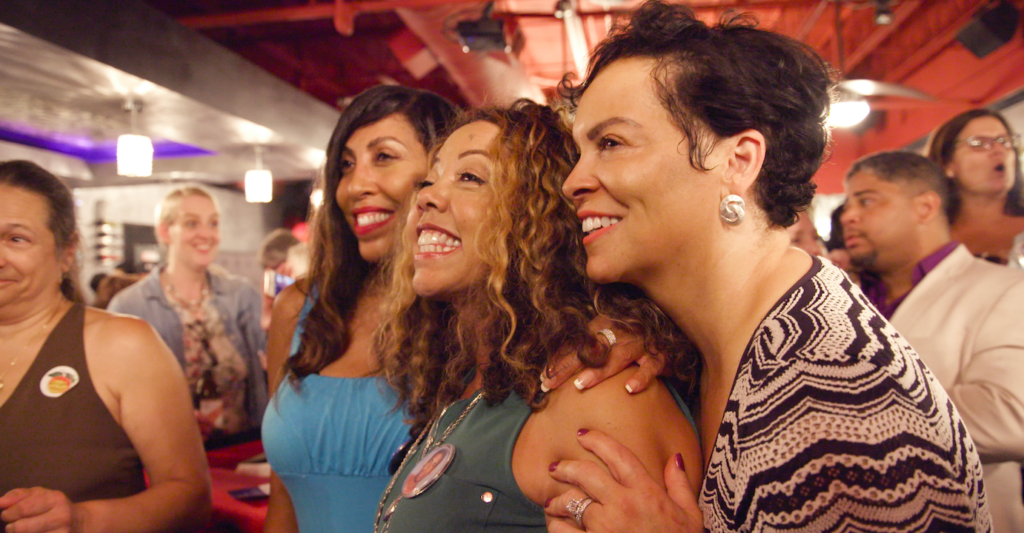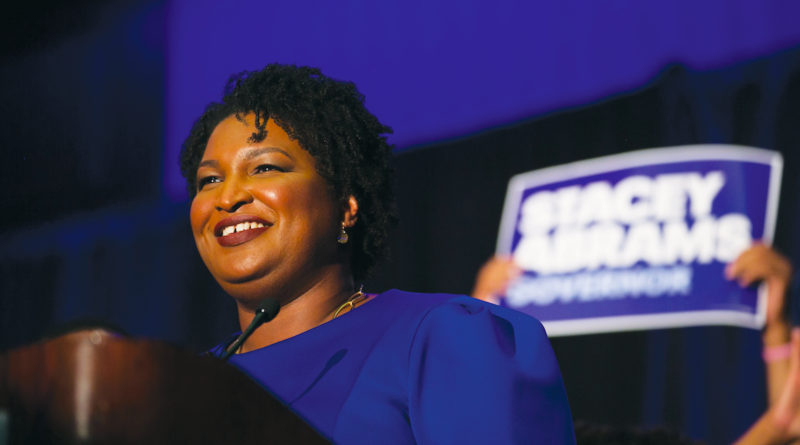INTERVIEW: New PBS miniseries charts progress made by women of color in politics
Photo: And She Could Be Next, the new documentary miniseries, follows the gubernatorial campaign of Stacey Abrams in Georgia, among other candidates of color across the United States. Photo courtesy of Grace Lee and Marjan Safinia / Provided by press rep with permission.
Tonight, June 29, PBS will premiere a two-part POV miniseries known as And She Could Be Next, co-directed by Grace Lee and Marjan Safinia. The deep dive into the political sphere charts the triumphs and struggles of female candidates of color, everyone from Congresswoman Rashida Tlaib to Georgia gubernatorial candidate Stacey Abrams.
For Safinia, this expansive project, which is part of the PBS Trailblazers series, is deeply personal.
“I grew up in Iran until there was a revolution there,” the director said in a recent phone interview. “Three weeks after my seventh birthday, I left the country that was home, and ever since then I’ve felt like an outsider.”
Safinia has lived in the United States for more than 20 years, and during much of that time she never felt the need to become a citizen. Then came the election of President Donald Trump and his controversial policy toward Muslim-majority countries.
“It felt so personal to me,” Safinia said of Trump’s ban. “It felt like my family and my people, and I just realized this sort of privilege of sitting out, of sitting on the sidelines and not converting from being a green card holder to a citizen so that I could actually vote was not a privilege that I could leave on the table. So doing this project is incredibly personal because the story of people like me and the talent and the passion of people who look like me, brown people of all kinds, being able to fully harness their power and their political agency is really profound and important and very deeply personal.”
[Read Hollywood Soapbox’s interview with Grace Lee here.]
To select the women they wanted to profile, Lee and Safinia conducted an extensive search throughout the country, checking out political races both national and local. They had several criteria in mind and were looking for candidates who were willing to have the cameras follow them around.
“We did a very robust research process,” said Safinia, whose other credits include Seeds and Building Community, Building Hope. “We knew that we were from the get-go clearly going to focus on women of color, but … it was a real tracking and refining process. So we started out with some kind of core tenets.”
The first tenet was that this was going to be a story solely about women of color, and they wanted to focus on different aspects of diversity, including race, ethnicity, age and geography.
“Also, for us, it was very important that these were races big and small because the thread that connects them, the themes of what’s it like to be a woman of color running in a system where most people don’t look like you, does carry through from the smallest story to the largest,” she said. “Then on top of that it was important to us that the women were not newcomers to the fight, so every woman that we followed as a candidate came from an organizing background and grew herself. So it was an evolution of her fight.”
It was also important for the filmmakers to select candidates who intersected with some of the larger issues that Lee and Safinia wanted to document: immigration policy, Islamophobia, racial issues and gun issues.
“So when we triangulated all those values that we wanted to find, then that list fell shorter, and then from there it was the ones who were willing to let a documentary crew follow them around, which not everyone is willing to do that,” the director said. “So by process of refinement, and then which ones were enthusiastic, we sort of landed on the women that we ended up putting in the film.”

One of the most profound storylines in the two-part miniseries, which continues Tuesday, June 30 after its Monday premiere, is that of Abrams in Georgia, who narrowly lost the gubernatorial race in the state, amid allegations of voter suppression.
“Obviously we were tracking Stacey,” Safinia said. “That was a clear and easy choice. … Grace had been hired to direct an episode of the PBS Makers series, Makers: Women in Politics, and she had met then a younger Rashida Tlaib when she was in the Michigan assembly. And so Grace had a relationship with Rashida, who wasn’t actually running when we started the project, but then John Conyers left a congressional seat that he held for 52 years. And the opportunity opened, and so it was early in January 2017 when Rashida decided to run for that seat. So that’s how we connected with Rashida.”
Safinia added: “Our producing partner, Jyoti [Sarda], had a relationship with Maria Elena Durazo here in Los Angeles. … Some were finds, like Bushra Amiwala, the young Pakistani Muslim in Skokie, [Illinois]. We found her by research, and she’s just fantastic, phenomenal. The minute we spoke to her, it was like a no-brainer. And Lucy McBath — we knew about Lucy. Lucy actually did a couple documentaries which featured the story of her son, Jordan Davis, so I was aware of Lucy. So it was a mix, so they weren’t all new to us. And certainly none of them were new to the movement.”
By John Soltes / Publisher / John@HollywoodSoapbox.com
And She Could Be Next, directed by Grace Lee and Marjan Safinia, will premiere on POV on PBS Monday, June 29 at 9 p.m. The second part airs Tuesday, June 30 at 9 p.m. This is part of the PBS Trailblazers initiative. Click here for more information.

